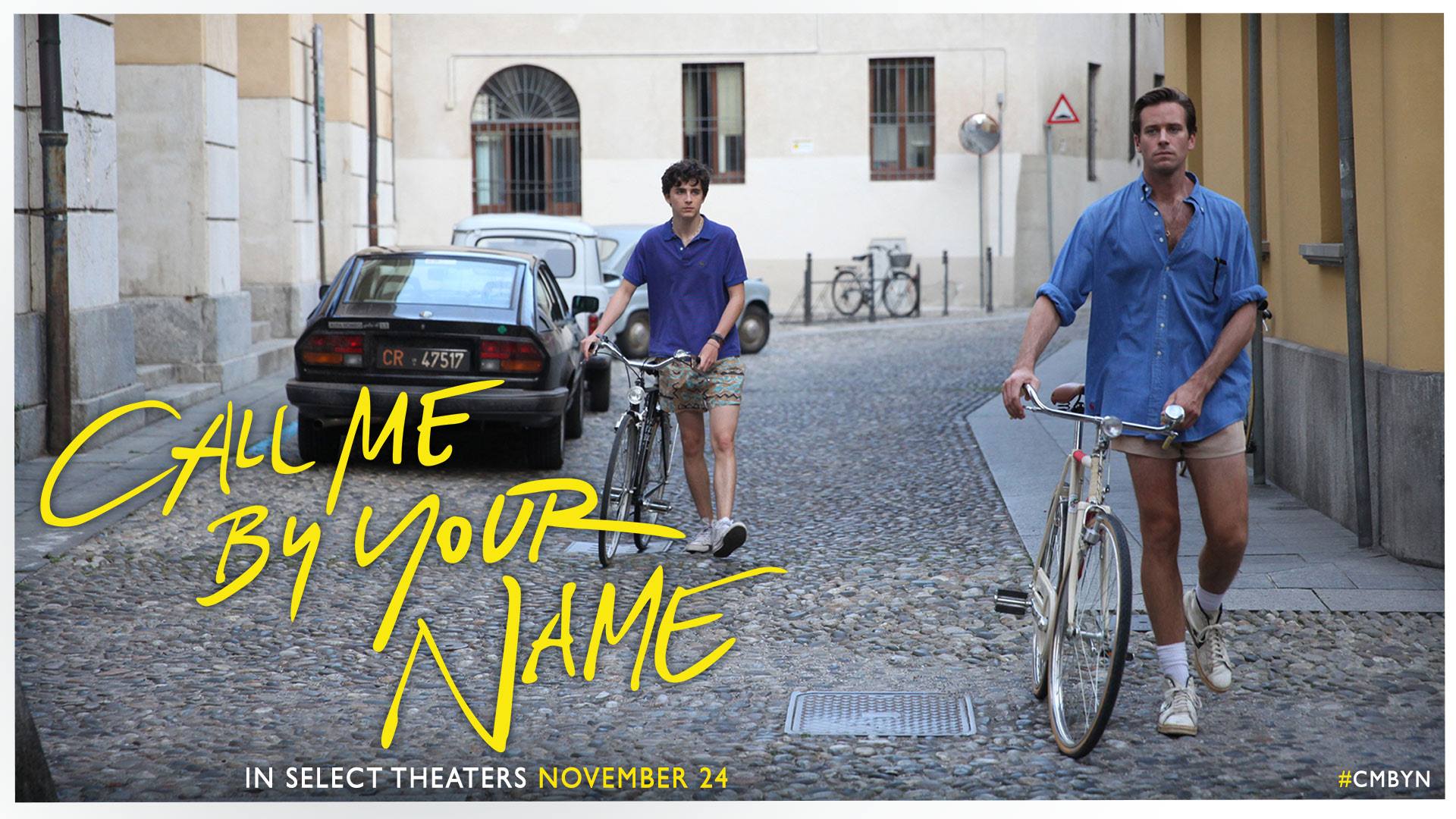You won’t find any gay slurs, discrimination, or obvious acts of homophobia in Call Me By Your Name – a fact that immediately separates it from any of its peers. This is not a film concerned with capturing the hardships of being an LGBTQ+ person in the twentieth or 21st century. Instead, it wants to celebrate the community, and does so while pulling out all the stops in terms of writing, directing, and acting.
The latest from celebrated director Luca Guadagnino is a joyous, but realistic, tribute to summer romances, first loves, and sexual awakenings that somehow manages to tell a story from a very specific point of view while still tapping into the universal feelings of nostalgia that surround such milestones.
Based on the novel by Andre Aciman, and adapted by legendary writer/director James Ivory, Call Me by Your Name follows 17-year-old Elio, who is spending the summer in Italy with his family, including his father (Michael Stuhlbarg), a noted professor. Elio passes his days composing music, sun bathing, and chasing after the pretty girl living next door, but things change when his father takes a grad assistant, a fellow American named Oliver (Armie Hammer).
It’s not long before Elio is finds his thoughts consumed by his new housemate – but what are these bizarre new feelings? A strange game of masculine one-upmanship? A need for a new friend? Or… sexual attraction? As the two become closer, both boys find themselves evolving into young men, changing in ways that will surprise both themselves and the audience.
Ivory’s screenplay is a work of understated, realistic wonder, perfectly married to Guadagnino’s subtly powerful direction. While many will (incorrectly) state that not much happens in Call Me by Your Name, those people will miss the fact that much of the movie’s conflict exists within the subtext. The joy of this film is watching the way that Elio and Oliver change, both as they try to seduce one another and, eventually, as they become comfortable as a couple. This is a marvelous portrait of how we project a preferred version of ourselves when we meet someone we’re attracted to, question ourselves as we navigate the confusing world of relationships and, ultimately, emerge as different people, made better by the strong performers that inhabit these roles.
Timothée Chalamet (best known for playing Matthew McConaughey’s son in Interstellar) emerges here as one of our most promising young male actors, as he comes of age before the audiences’ very eyes over the course of the film’s 132 minute runtime. We see him begin the film as an immature child, unsure of his place in the world or even how his growing body works, only to believably evolve into an adult by the film’s end. The movie’s final scene – an extended, unwavering shot of Chalamet’s face – is one of the year’s most startling and powerful.
Just as impressive is Armie Hammer, who relishes his character’s alpha male qualities in the first act, only to slowly chip away at his hyper-masculine armor and expose a complex, emotional, and even scared young man trying to understand his feelings. Watching these two men so totally inhabit their characters is exhilarating, making for one of the most compelling onscreen couples in ages.
One could write paragraphs about the many technical aspects the film gets right, from some stunning cinematography to the two beautiful new songs performed by Sufjan Stevens. But there is one thing that’s important to emphasize: this is an important landmark in film history. There has never been a film of this magnitude, with recognizable actors and the backing of a major studio, that just allows its LGBTQ+ characters to exist, and fall in love, without having to justify their right to do so for straight people both in the audience and in the film.
Call Me by Your Name is about a different sort of hardship faced by the LGBTQ+ community: having to learn to love yourself, and love another person, when you don’t quite fit in the binary that society was built on. This is a beautiful, necessary film about the power of self-acceptance – a point driven home in the penultimate scene, when Michael Stuhlbarg delivers a speech that every LGBTQ+ child deserves to hear at least once in their life. The fact that a film this important is also this good is, simply, the icing on the cake.
Overall rating: 10 out of 10.



Comments are closed.